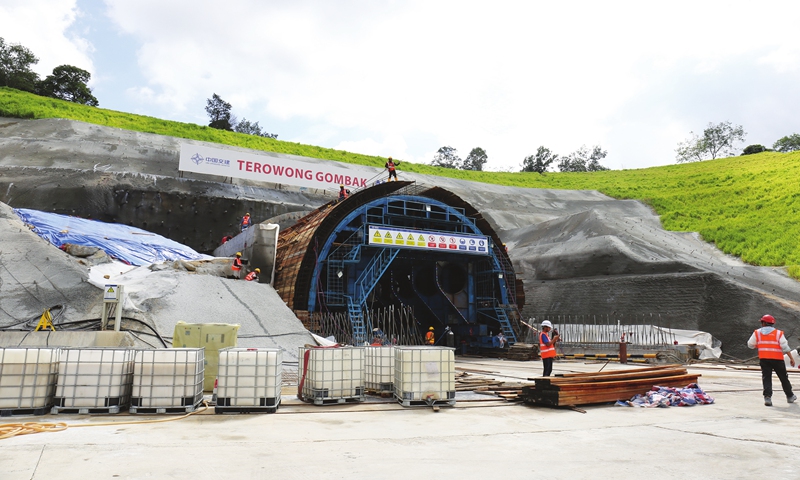Strengthened connectivity, innovation & digital economy to inject new vitality: expert
The Belt and Road Initiative (BRI) injects new growth momentum into the world economy and creates vast room for global development, as it helps strengthen policy exchanges and infrastructure connectivity, and supports smooth trade and investment, industry insiders and experts said at the Financial Street Forum annual conference held in Beijing on Thursday.
As the joint construction of the BRI starts a new journey for another “golden decade,” they said connectivity among BRI countries and regions should be strengthened, while new cooperation sectors such as innovation, the digital economy and the green economy should be explored to inject vitality and momentum into the BRI.
“Compared with other countries, the BRI accommodates the interests and concerns of all parties involved, and seeks a conjunction of interests and the ‘biggest common denominator’ for cooperation. For example, the Addis Ababa-Djibouti railway helps landlocked Ethiopia access maritime trade ports while injecting strong momentum into the logistical development of Djibouti’s ports,” China Civil Engineering Construction Corp, a main contractor of the railway, said in a statement sent to the Global Times.
As a flagship project under the BRI framework, the Addis Ababa-Djibouti railway has operated more than 2,600 passenger trains carrying nearly 550,000 passengers since its commercial operation began in 2018, according to media reports.
InvestCorp CEO Hazem Ben-Gacem told the Global Times in an exclusive interview on Wednesday that the Gulf Cooperation Council has been one of the biggest beneficiaries of the BRI. About $123 billion has been invested by China and Chinese institutions into the infrastructure of the Middle East, in ports and in airports as well as in logistics and warehouses, he said.
There are many opportunities for Chinese financial institutions and those from the Middle East to cooperate and finance some projects in the Middle East region, according to Ben-Gacem.
“In cooperation with the Asian Infrastructure Investment Bank, we recently invested in a water desalination plant in Abu Dhabi. It’s our first infrastructure investment in the Gulf, but more importantly in the sustainable waterfront in the area, which has been a historic challenge for many nations,” Ben-Gacem said.
At the third Belt and Road Forum for International Cooperation held in Beijing in October, China vowed more financing for BRI projects on the basis of market and business operations, with two policy banks each setting up a financing window of 350 billion yuan ($48.75 billion), and an additional 80 billion yuan being injected into the Silk Road Fund.
China will carry out 1,000 small-scale livelihood assistance projects.
As an active participant, contributor and beneficiary, Hong Kong will give play to its unique advantages to deepen economic and trade cooperation with other economies and play a more important role in the joint building of the BRI, Secretary for Financial Services and the Treasury of the Hong Kong Special Administrative Region Christopher Hui Ching-yu said at the same forum on Thursday.
Hong Kong financial regulators will accelerate the study of including yuan counters in stock connect programs between the Chinese mainland and Hong Kong so as to provide more opportunities for yuan-denominated asset trading and contribute to the yuan’s internationalization, Hui said.
Vice President of JA SOLAR Zhu Daocheng, a Chinese photovoltaic power firm that has an intensive presence along the BRI, told the Global Times on Wednesday that its strong international competitiveness and rich experience in investment and financing had helped the company promote the development of green energy in the Middle East and other regions.
“It is precisely because of the participation of finance [provided by BRI] that these large-scale projects can be implemented, enabling more countries to achieve energy transformations,” Zhu noted, noting that more countries are expected to benefit from the initiative.
(Global Times)




